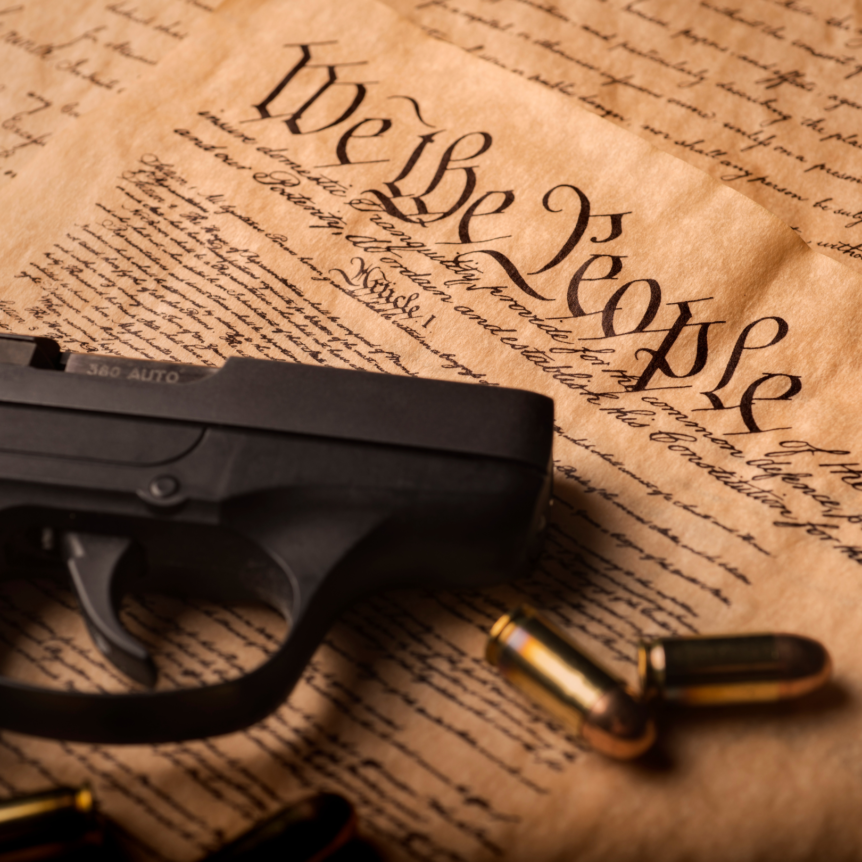A Florida Gun Trust: The Smart Way to Leave Firearms to Your Heirs
Your right to own a gun is essential to you, so naturally, you want your friends and family to continue that legacy after you’re gone. However, many gun owners are unaware of the legal barriers and potential consequences of including firearms in a Florida estate plan. State and federal laws make it challenging to bequeath certain firearms, so you need to know your options now to prevent problems for your heirs.
Can I Leave Firearms to Family Members In My Will?
The critical thing to remember is that you must adhere to both state and federal laws when passing on weapons to your loved ones. The federal National Firearms Act (NFA), which regulates the ownership and use of guns, splits different types of firearms into two distinct groups:
Title I Firearms
Pistols, revolvers, rifles, shotguns, and most guns used for hunting and personal protection are categorized as Title I weapons under U.S. law. Any adult can purchase Title I firearms without a license in Florida, and the NFA doesn’t require owners to report purchases or transfers of Title I firearms to the federal government. Type I firearms can pose some estate planning problems when included in a Will but are generally straightforward to transfer to heirs.
Title II Firearms
Type II firearms—such as short-barreled rifles, sawed-off shotguns, machine guns, suppressors, and grenades—are heavily regulated by NFA. All Type II weapons must be registered with the Federal Bureau of Alcohol, Tobacco, Firearms and Explosives (ATF) using serial numbers.
There are many ways to run afoul of the law when leaving your Title II firearms to an heir, including:
– Illegal transfers. To legally transfer your Title II firearms, you must file application Form 4 (including the applicant’s photograph and fingerprints) with ATF. Applicants will have to pay a $200 transfer tax and notify a county law enforcement official of the filing. If not done correctly, your heir could be charged with unauthorized firearm possession.
–Prohibited Person. There are many qualifications for prohibited persons, such as people convicted of certain crimes, diagnosed with mental disorders, used drugs, or without U.S. residency.
– Unauthorized use. Only a responsible registered owner may access or possess a Title II firearm under federal law. Anyone who inherits a gun, shares a firearm with a friend or family member, or even lives in the house where the gun is stored could face a 10-year prison sentence and up to $250,000 in fines.
What Is a Florida Gun Trust?
As you can see, it’s impossible to bequeath Title II weapons to your friends or family in your Will. Florida gun trusts—also called NFA, Class 3, or Title II trusts—offer better protection than individual ownership of these firearms. Gun trusts are specifically designed to hold Type II firearms and other weapons subject to federal regulation. The trust is the legal owner of the guns, while the trust maker and trustees are considered “responsible persons” under federal law.
A Florida gun trust is a revocable living trust during the trust maker’s lifetime and becomes irrevocable after the trust maker’s passing. These trusts may last for generations and have multiple trustees, each with listed rights of possession and use.
Benefits of holding Title II firearms in a trust include:
– Shared use. Only one person may own a Title II weapon under federal law. However, a gun trust acts as a single owner while allowing multiple trustees access to the same weapon. Trust makers can add or remove trustees as often as they want during their lifetimes and any trustee who isn’t considered a “prohibited person” can access the weapons in the trust.
–Probate avoidance. Unlike person-to-person transfers, the NFA doesn’t regulate transfers from a gun trust to its trustees. Trusts are also excluded from a gun owner’s probate proceedings, keeping your firearms’ details and market value out of public records. Successor trustees can inherit your gun collection without filing ATF forms, paying transfer taxes, or reporting to local law enforcement.
–Privacy. The details of your gun trust are kept private because the document isn’t registered or filed with state agencies. You have the freedom to add or remove trustees without disclosing their names to the public, and government agencies cannot confiscate firearms held in trust.
–Legal protection. Without a gun trust, your executor could unwittingly transfer your Class II firearm to an unauthorized owner, minor child, or other prohibited person. Even if these transfers are made accidentally, your executor or family members could be charged with a criminal violation of the NFA. A properly-drafted gun trust leaves weapons only to qualified parties, outlines each trustee’s duties for using and storing firearms, and allows trustees to update the trust if state and federal laws change.
– Incapacity planning. It’s illegal for someone to own a gun if they’re incapacitated, such as if they develop dementia or fall into a coma. If you own one weapon or an entire collection, none of your family members can legally take possession of your guns. Our law firm creates a comprehensive estate plan that allows trustees to immediately access firearms held in a gun trust in the event of severe illness or incapacity.
Check With an Estate Planning Attorney Before You Put Firearms in a Gun Trust
Gun trusts are an invaluable estate planning tool for collectors and firearm enthusiasts, but they are complex documents that can backfire if not done correctly. If your trust isn’t drafted to comply with federal laws, state gun laws, and Florida trust statutes, your heirs could face high fines or spend time in jail due to their inheritance.
As a former U.S. Marine and proud gun owner, our founding attorney A.J. Yolofsky knows how important it is to preserve your family’s firearm rights after you pass away. We recommend that you schedule a call or email us at hello@yolofskylaw.com today to create a customized estate plan that protects your values and your family.

